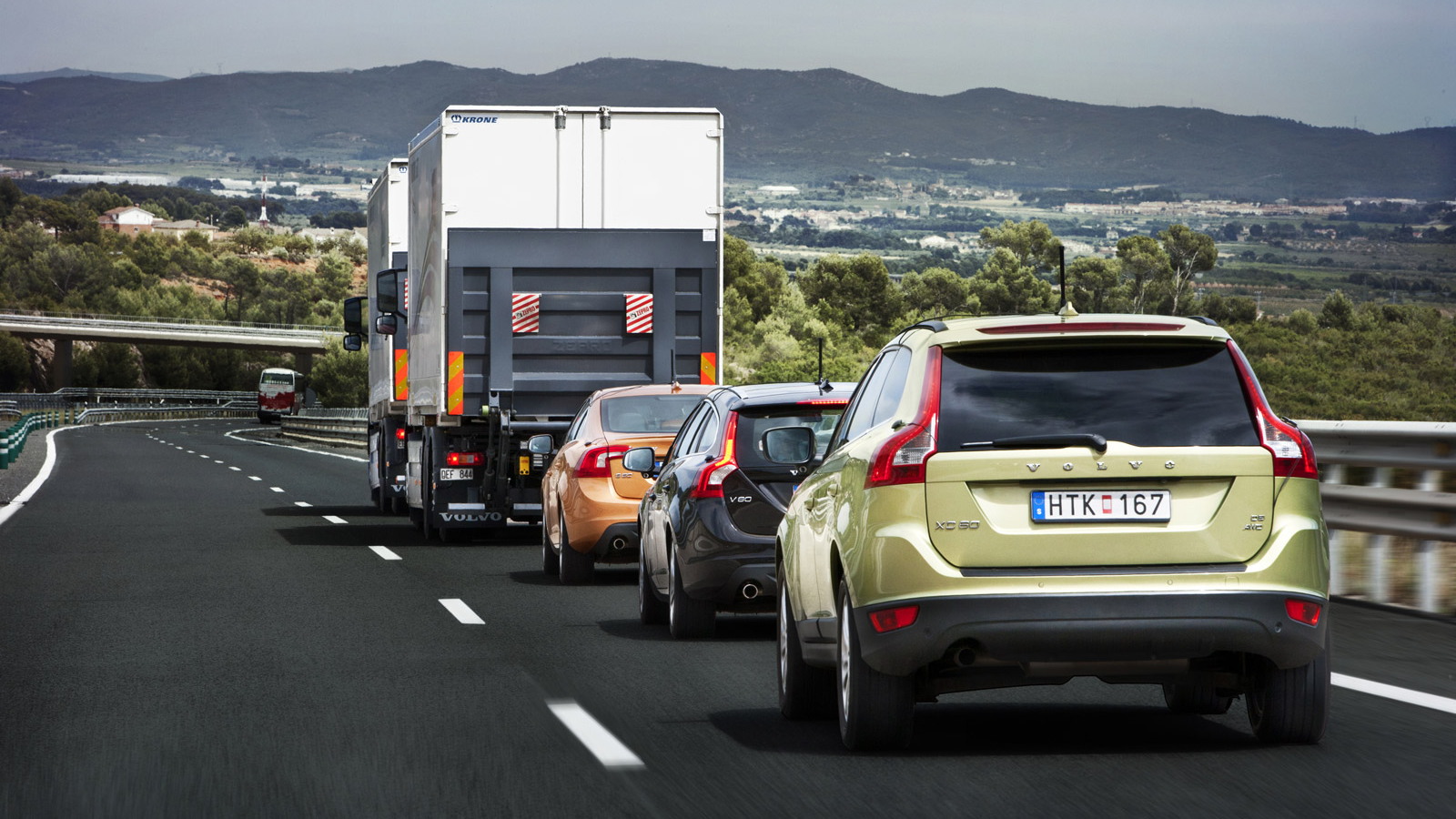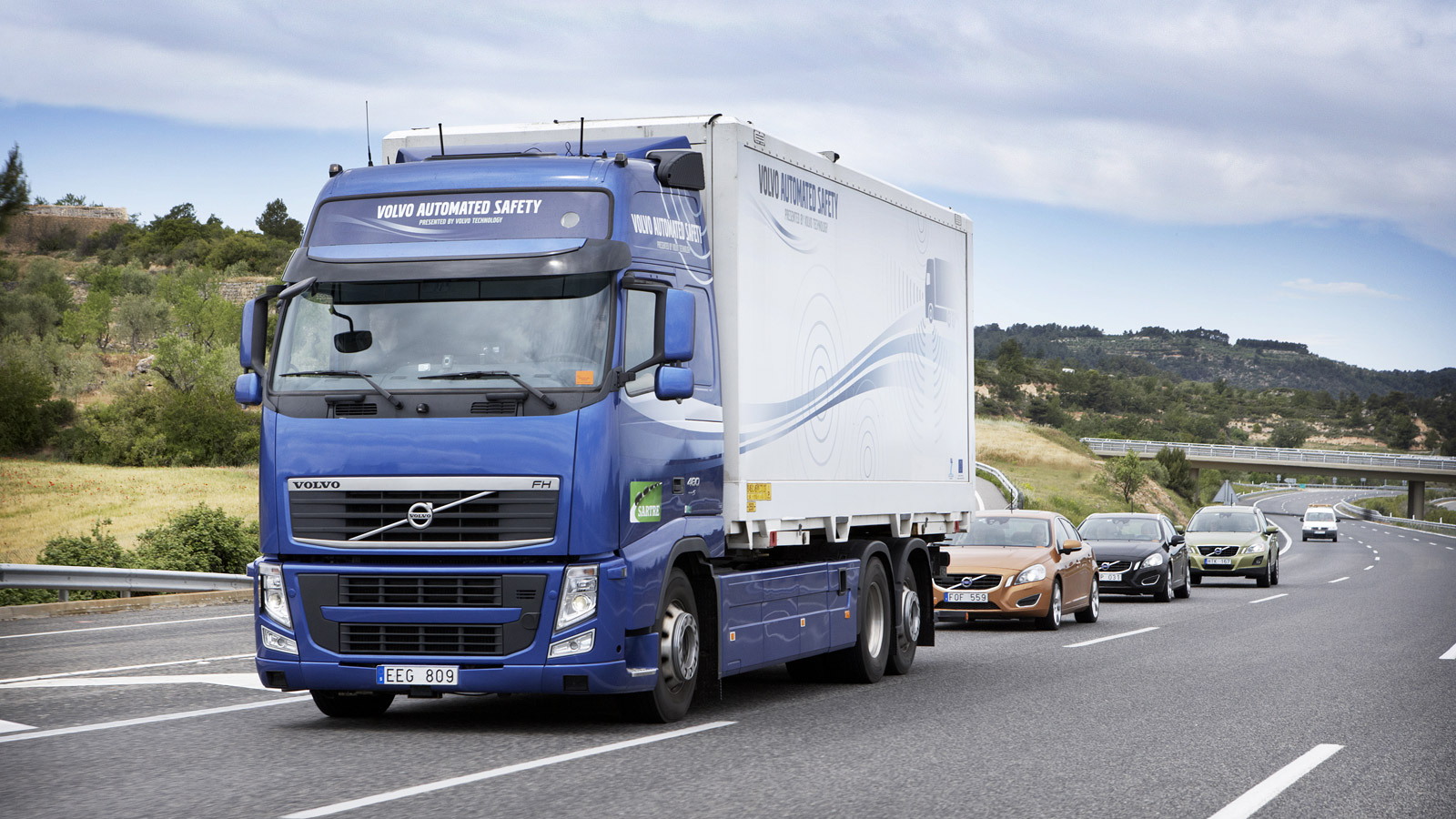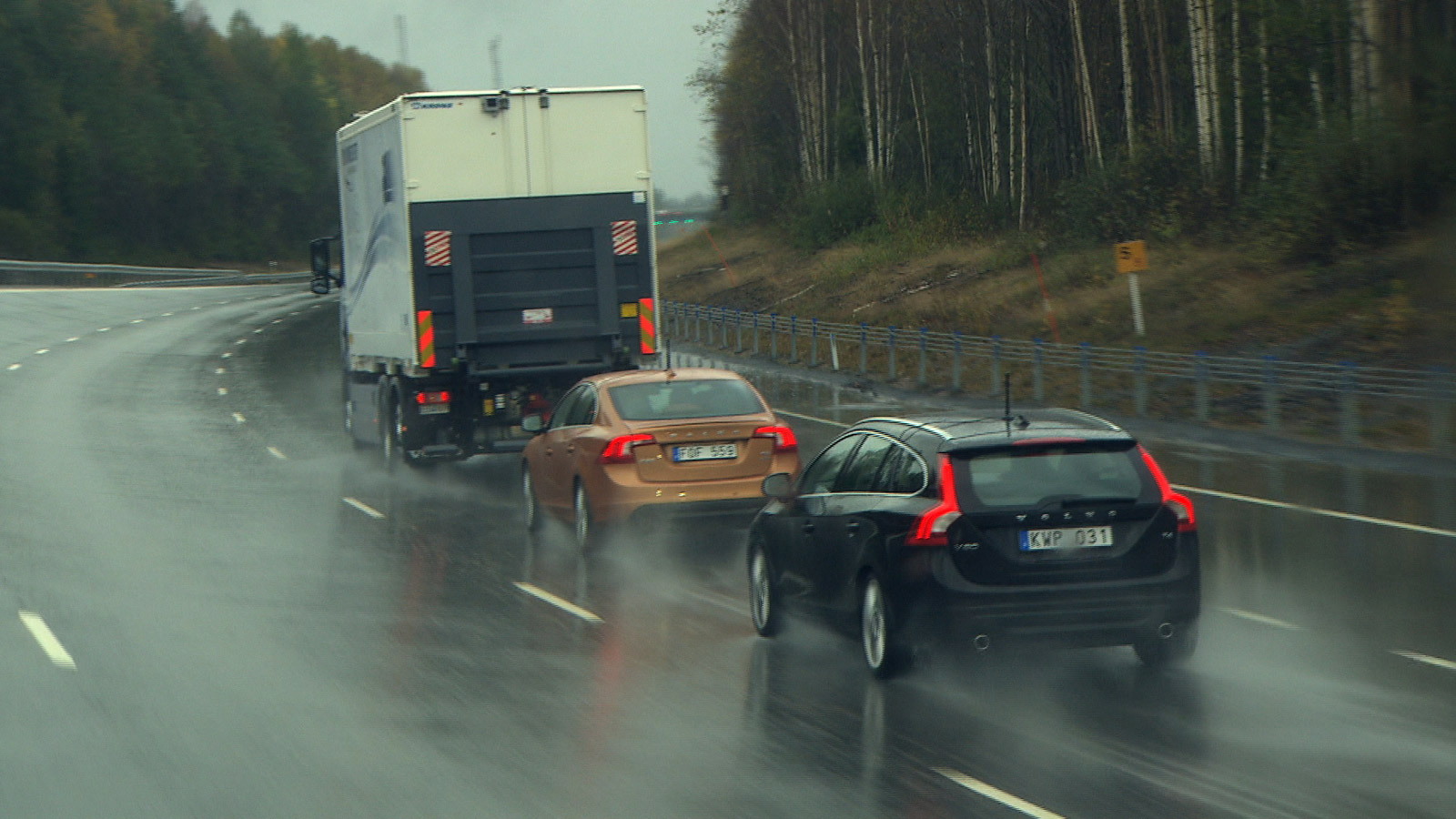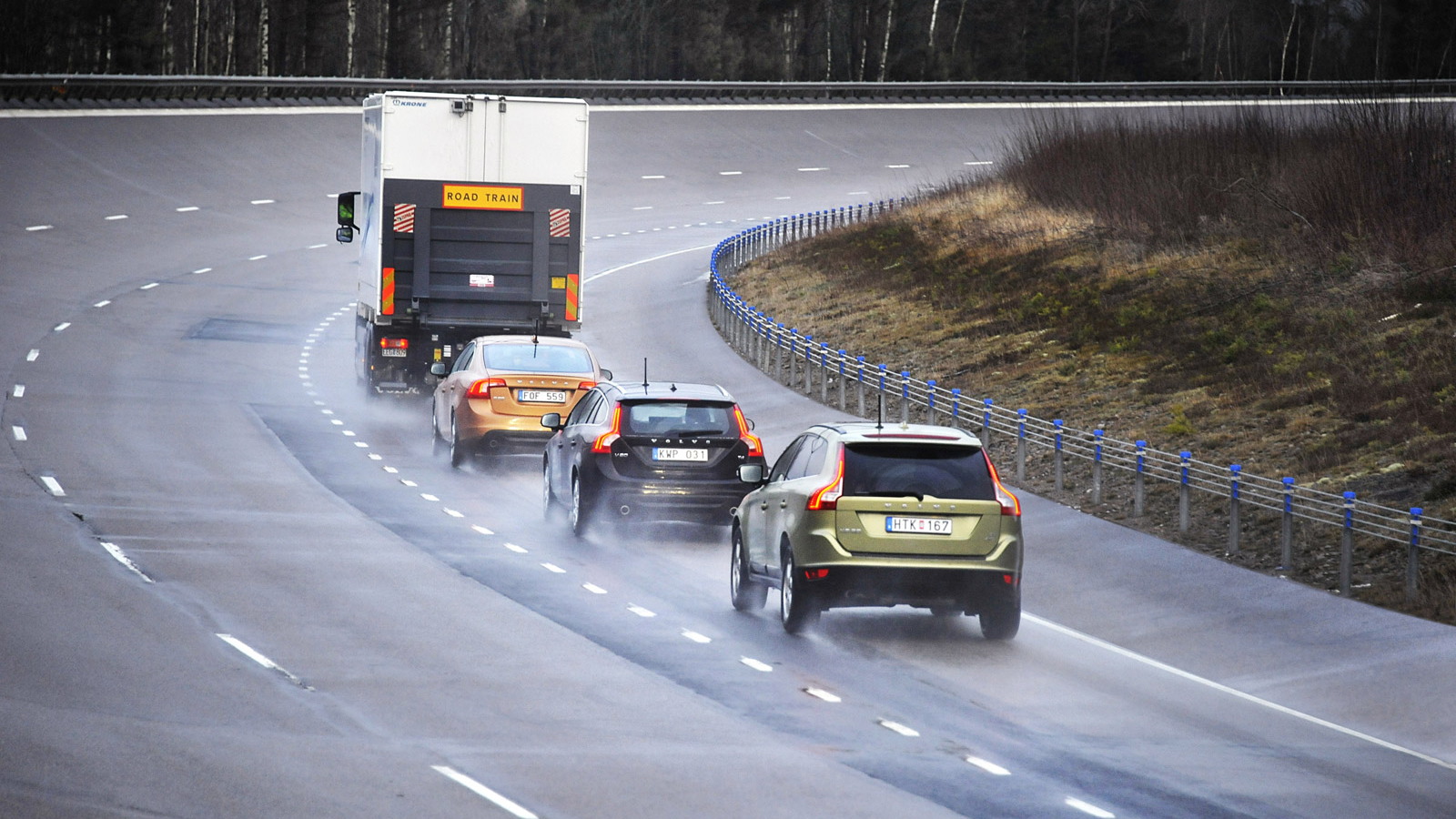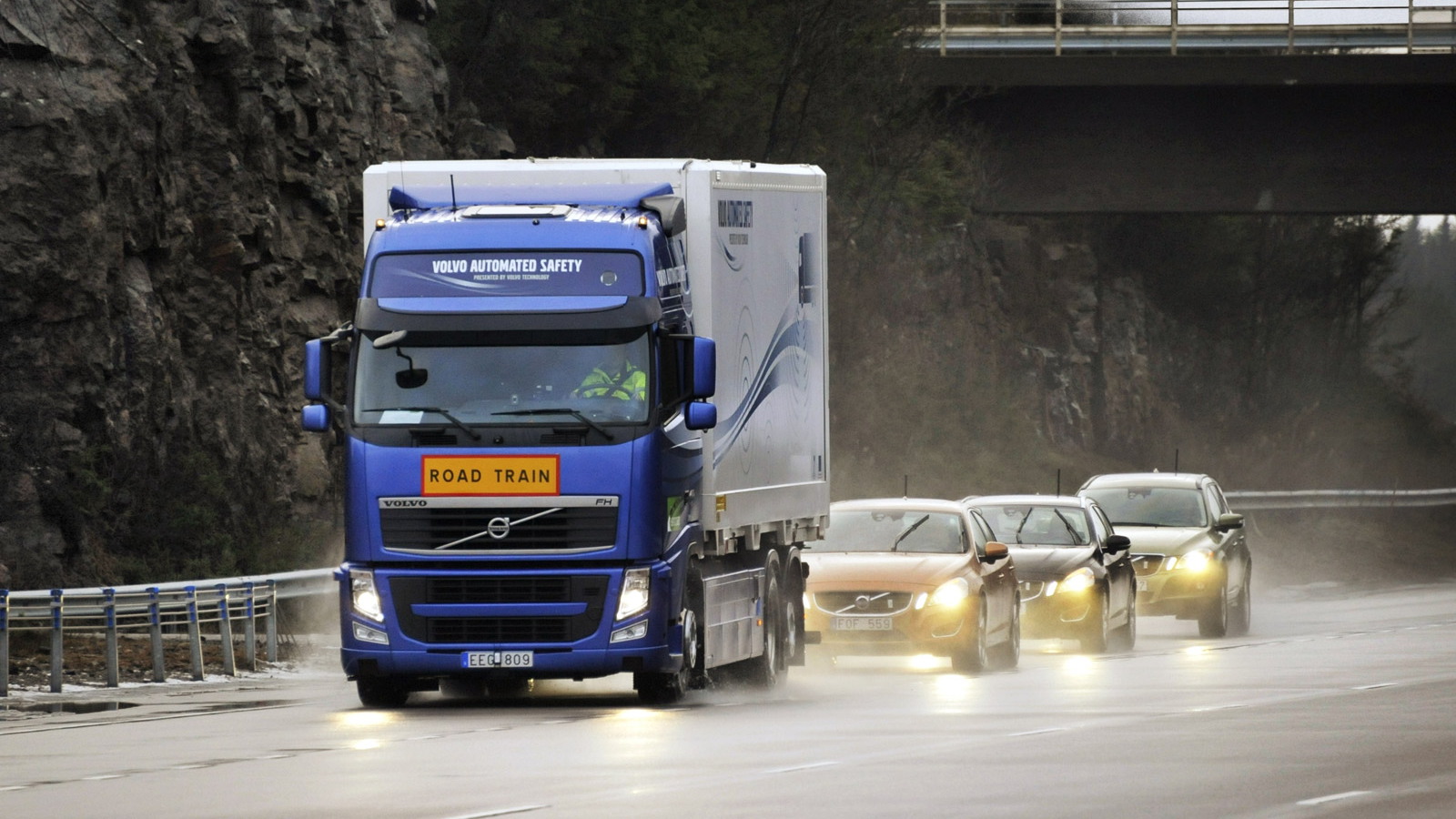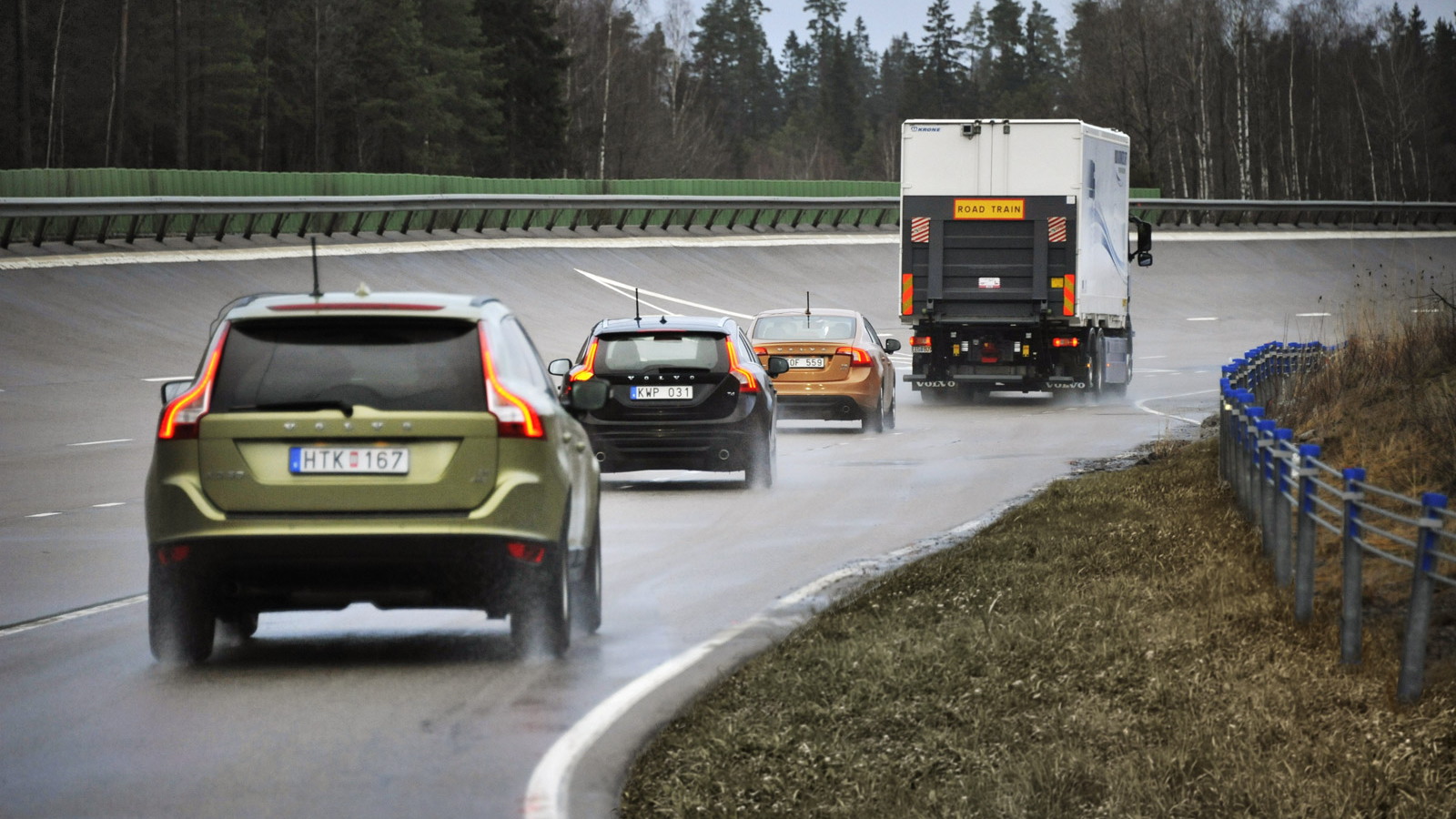For the past couple of years we’ve been bringing you details about the SARTRE (Safe Road Trains for the Environment) initiative being conducted by Volvo and several other partners.
As its name suggests, the initiative aims to provide vehicles with the ability to drive themselves in long road trains on highways.
The technology has the potential to improve traffic flow and journey times, offer greater comfort to drivers, reduce accidents, and improve fuel consumption and hence lower CO2 emissions.
After conducting its first real world test on a closed-off road back in January of 2011, the SARTRE system has now successfully completed its first test on a public road among other road users. The test fleet consisted of a lead truck being driven by a professional driver and three following vehicles consisting of a Volvo XC60 crossover, V60 wagon and S60 sedan.
The fleet was driven successfully over a distance of 124 miles and at speeds in excess of 50 mph on a highway near Barcelona, Spain. Researchers found that while participants were initially uneasy about driving at highway speeds just several feet behind another vehicle and relying solely on technology, the participants acclimatized very quickly.
While this test was used to determine how people would react to the cars being driven autonomously, both those in the SARTRE vehicles and other road users, the next phase will focus on analysis of fuel consumption. There’s still no word as to when the technology will be ready for the mainstream though the SARTRE project is scheduled to be completed by the end of this year.
